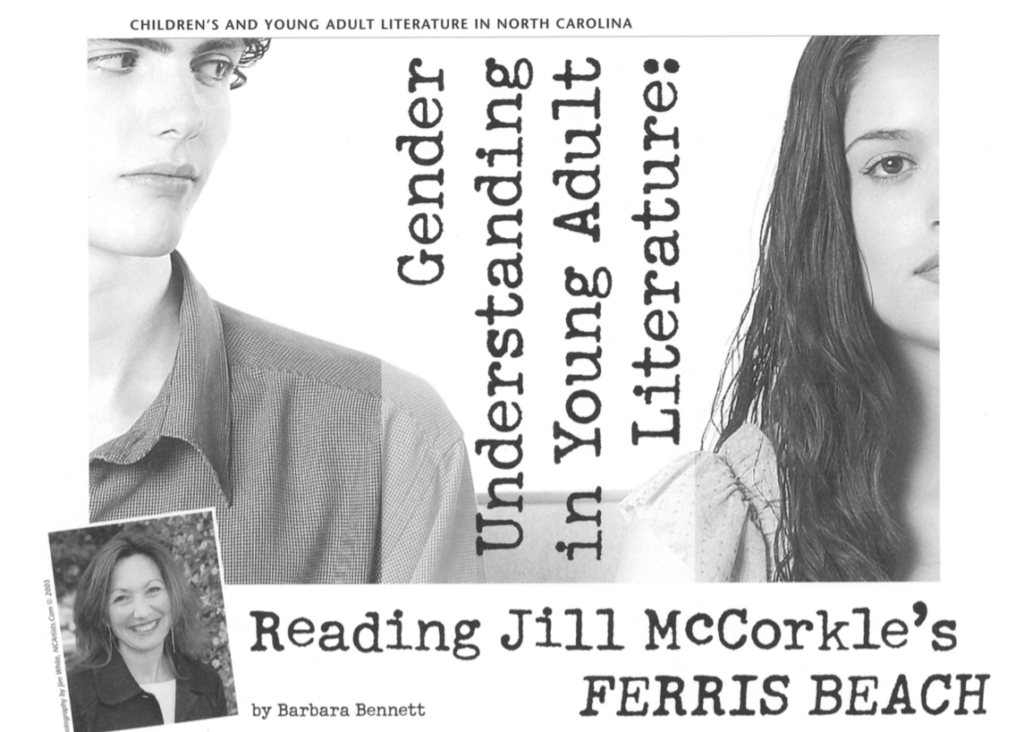Teaching Tuesdays: “Reading Jill McCorkle’s Ferris Beach” by Barbara Bennett, from NCLR Issue 15 (2006)
By Daniel Moreno
As the release of our Fall Online issue approaches, with its main theme of pedagogy, it makes sense to harken back to an essay from our YA-themed 2006 issue, which took a close look at McCorkle’s Ferris Beach from the perspective of a teacher aiming to broaden gender representation in high school literature throughout the US.
In her college courses where she teaches future teachers, Bennett looks for new material to add to the bibliography of traditionally-used literature in high schools. And given the disappointing lack of books featuring strong, genuine female protagonists in that pool, Bennett turns to Ferris Beach. She argues that “females are interested in what happens in the Woman’s World, but the male World is a universal one, interesting to both sexes. Because of this Hierarchy, generally boys and Girls will read ‘boy books,’ but boys are not interested in reading ‘girl books,’” and she continues, “reaching future teachers is paramount in changing how future high school students respond to cross-gender stories.”
Through the essay, Bennett breaks down McCorkle’s protagonist, Kate, using the Hero’s Journey to show how a female twist on the trope could be beneficial to students: female students could benefit from exploring themes inherent to their gender identity in the world, and male students could benefit from seeing a fundamentally different perspective of the world that could help develop their empathy and imagination.
Bennett writes, “Ferris Beach is an excellent novel to teach in a high school classroom for many reasons — It’s timeless themes, It’s relevance for young adults, forging their own paths through parental conflict and the search for identity, McCorkle’s accessible yet poetic style — but perhaps the most compelling reason might be the necessity for gender understanding, the opportunity for young men to see the world through the eyes of a young woman and to try to understand that different perspective.”
Read the whole interview in the 2006 issue, featuring “Children’s and Young Adult Literature in North Carolina.”
